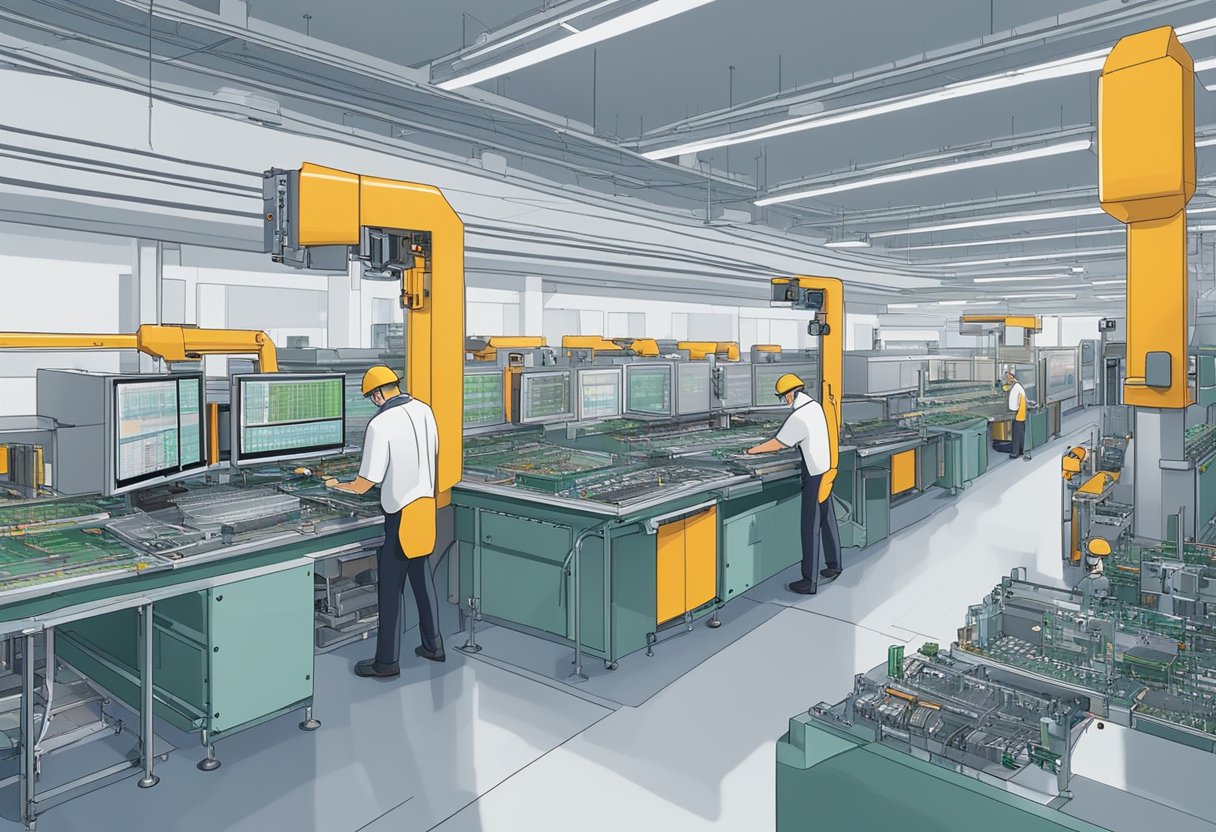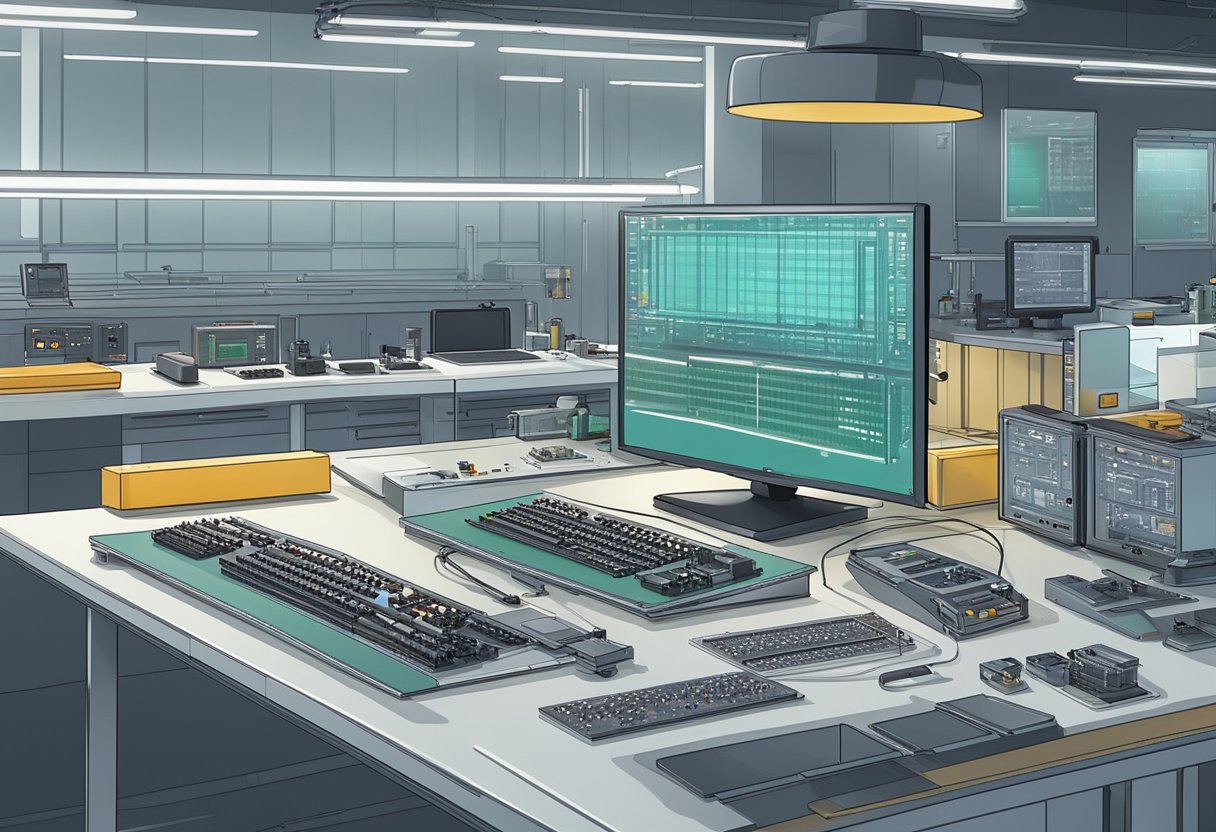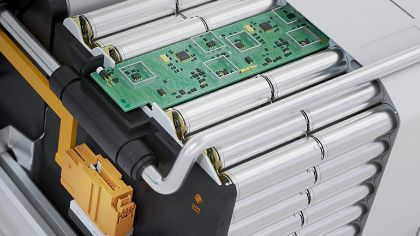PCB Assembly Jobs in the UK: Opportunities and Requirements
PCB assembly jobs in the UK have been on the rise in recent years due to the increasing demand for electronic products. PCB assembly is the process of attaching electronic components to a printed circuit board (PCB) to create a functional electronic device. The process involves various stages, including soldering, inspection, and testing, and requires specialized skills and knowledge.

With the growth of the electronics industry, there has been a significant increase in the demand for PCB assembly jobs in the UK. These jobs are available in various sectors, including automotive, aerospace, medical, and telecommunications. PCB assembly jobs require a range of skills, from manual dexterity and attention to detail to knowledge of electronic components and circuits. Many companies offer on-the-job training and apprenticeships to help individuals acquire the necessary skills and knowledge for these positions.
In today’s fast-paced and technology-driven world, PCB assembly jobs are essential for the development and production of electronic devices. As the demand for these products continues to grow, so does the need for skilled workers in the field of PCB assembly. This article explores the various aspects of PCB assembly jobs in the UK, including the skills required, the different sectors where these jobs are available, and the training and education required for these positions.
Overview of PCB Assembly Jobs in the UK

PCB assembly jobs in the UK are in high demand due to the increasing use of electronic devices in various industries. PCB assembly involves the process of assembling electronic components onto a printed circuit board (PCB) to create a functional electronic device. The UK has a thriving electronics industry, and there are various job opportunities available for individuals with the necessary skills and qualifications.
PCB assembly jobs in the UK can be found in various industries, including aerospace, automotive, medical, and telecommunications. These industries require electronic devices with high levels of accuracy and precision, which makes PCB assembly a crucial part of the manufacturing process.
Individuals with skills in PCB assembly can find employment as electronic assemblers, PCB designers, PCB technicians, and quality control inspectors. They may also work in production, research and development, or in technical support roles.
To work in PCB assembly jobs in the UK, individuals must have a good understanding of electronics and be able to read and interpret technical drawings and schematics. They must also have experience with surface mount technology (SMT) and through-hole technology (THT) assembly techniques. Additionally, knowledge of programming languages and software such as CAD (computer-aided design) and CAM (computer-aided manufacturing) is beneficial.
In summary, the demand for PCB assembly jobs in the UK is on the rise, and individuals with the necessary skills and qualifications can find employment in various industries. With the right training and experience, individuals can pursue a rewarding career in the electronics industry.
Skills and Qualifications Required for PCB Assembly
PCB assembly jobs in the UK require a specific set of skills and qualifications. These can vary depending on the employer and the specific job requirements, but there are some general skills and qualifications that are commonly required.
Skills
- Attention to detail: PCB assembly requires precise placement of components, and even small mistakes can cause significant problems. Attention to detail is essential to ensure that the assembly is completed accurately.
- Hand-eye coordination: PCB assembly involves working with small components and intricate designs. Good hand-eye coordination is necessary to ensure that components are placed correctly and that the assembly is completed accurately.
- Manual dexterity: PCB assembly involves working with small components and using tools such as tweezers and soldering irons. Good manual dexterity is necessary to ensure that components are placed correctly and that the assembly is completed accurately.
- Knowledge of electronics: A basic understanding of electronics is essential for PCB assembly jobs, as it helps in identifying components and understanding their functions.
- Ability to read schematics: PCB assembly requires the ability to read and interpret schematics and other technical drawings accurately.
Qualifications
- Education: A high school diploma or equivalent is typically required for PCB assembly jobs. Some employers may prefer candidates with a degree or certificate in electronics or a related field.
- Experience: Experience in PCB assembly or a related field is often preferred by employers. Candidates with experience in electronics manufacturing, quality control, or testing may also be considered.
- Certifications: Some employers may require or prefer candidates with certifications such as IPC-A-610 or J-STD-001, which demonstrate knowledge and proficiency in PCB assembly.
Overall, PCB assembly jobs in the UK require a combination of technical skills, manual dexterity, and attention to detail. Candidates with a basic understanding of electronics, experience in PCB assembly or a related field, and relevant certifications may have an advantage in the job market.
Major PCB Assembly Employers in the UK
The UK is home to several major PCB assembly employers. These companies offer a range of employment opportunities, from entry-level positions to senior management roles. Here are some of the top PCB assembly employers in the UK:
OEMs and Electronics Companies
Original Equipment Manufacturers (OEMs) and Electronics Companies are some of the largest employers of PCB assembly technicians in the UK. These companies design and manufacture a wide range of electronic products, from consumer electronics to industrial machinery. Some of the top OEMs and Electronics Companies in the UK include:
- Apple
- Samsung
- Sony
- Toshiba
- Panasonic
Contract Electronics Manufacturers
Contract Electronics Manufacturers (CEMs) are companies that specialize in providing PCB assembly services to other companies. These companies are often hired by OEMs and Electronics Companies to produce electronic components and products on their behalf. Some of the top CEMs in the UK include:
- Jabil
- Flex
- Celestica
- Sanmina
- Plexus
Startup Opportunities
The UK is also home to a growing number of startups focused on PCB assembly and electronics manufacturing. These companies offer exciting opportunities for individuals looking to work in a fast-paced, innovative environment. Some of the top PCB assembly startups in the UK include:
- Circuitree
- Quadra Solutions
- PCB Train
- LCL Electronics
Overall, the UK offers a diverse range of employment opportunities in the PCB assembly industry. Whether you are interested in working for a large OEM, a contract manufacturer, or a startup, there are plenty of options to choose from.
Job Market Trends and Statistics
The job market for PCB assembly jobs in the UK has been relatively stable in recent years. According to data from the Office for National Statistics, there were approximately 10,000 people employed in the electronics manufacturing industry in the UK in 2023. This represents a slight increase from the previous year.
In terms of salaries, the average wage for a PCB assembler in the UK is around £20,000 to £25,000 per year. However, this can vary depending on experience, location, and the specific company.
As for job growth, there has been a slight increase in demand for PCB assemblers in recent years due to the growth of the electronics industry in the UK. However, the job market for PCB assembly jobs is expected to remain relatively stable in the coming years.
Overall, the job market for PCB assembly jobs in the UK is competitive, but there are opportunities for those with the right skills and experience. It is important for job seekers to stay up-to-date with the latest industry trends and to continuously develop their skills in order to remain competitive in the job market.
Career Paths in PCB Assembly
There are various career paths available in the PCB assembly industry. The most common career paths include:
1. PCB Assembler
A PCB assembler is responsible for assembling electronic components onto printed circuit boards. They must have a good understanding of electronic components and be able to read and interpret technical drawings and schematics. PCB assemblers must also have excellent hand-eye coordination and attention to detail.
2. PCB Designer
A PCB designer is responsible for designing the layout of printed circuit boards. They must have a good understanding of electronic components and be able to use CAD software to create designs. PCB designers must also have excellent attention to detail and the ability to work to tight deadlines.
3. PCB Test Technician
A PCB test technician is responsible for testing printed circuit boards to ensure they meet the required specifications. They must have a good understanding of electronic components and be able to use testing equipment such as oscilloscopes and multimeters. PCB test technicians must also have excellent attention to detail and the ability to work to tight deadlines.
4. PCB Quality Control Inspector
A PCB quality control inspector is responsible for inspecting printed circuit boards to ensure they meet the required quality standards. They must have a good understanding of electronic components and be able to identify defects and faults. PCB quality control inspectors must also have excellent attention to detail and the ability to work to tight deadlines.
Overall, there are many different career paths available in the PCB assembly industry. Each career path requires a different set of skills and knowledge, but all require a high level of attention to detail and the ability to work to tight deadlines.
Finding PCB Assembly Job Opportunities
For those seeking employment in the PCB assembly industry in the UK, there are several ways to find job opportunities. One option is to search online job boards such as Indeed, Totaljobs, and Reed. These websites allow job seekers to filter their search based on location, job title, and salary.
Another option is to visit the websites of PCB assembly companies in the UK. Many of these companies have a careers section on their website where they post job openings. It is also beneficial to research and contact recruitment agencies that specialize in the electronics industry. These agencies can provide valuable insights into the current job market and connect job seekers with potential employers.
Networking is also a valuable tool in finding job opportunities. Attending industry events and conferences can provide opportunities to meet professionals in the field and learn about potential job openings. Job seekers can also join online forums and groups related to the electronics industry to connect with other professionals and stay up-to-date on industry news and job opportunities.
It is important for job seekers to have a well-crafted resume and cover letter that highlights their skills and experience in the PCB assembly industry. They should also be prepared to showcase their knowledge and skills during the interview process. By utilizing these strategies, job seekers can increase their chances of finding a rewarding career in the PCB assembly industry in the UK.

